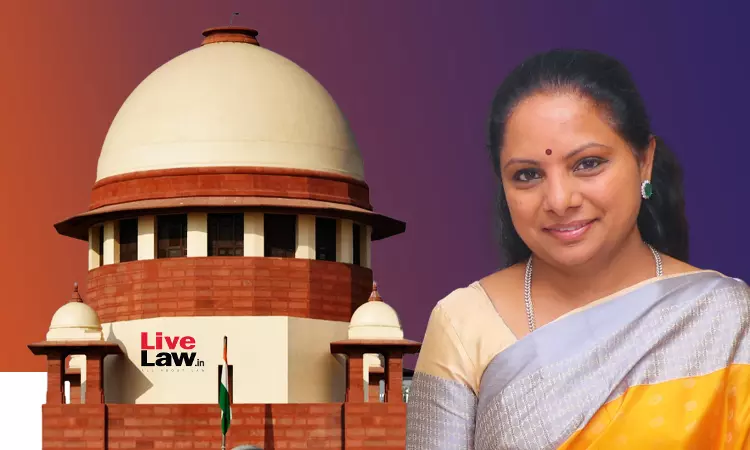 |
|
The Supreme Court of India, in a landmark decision, granted bail to K Kavitha, a prominent leader of the Bharat Rashtra Samithi (BRS) party, while sharply criticizing the Delhi High Court's reasoning for denying her bail in the ongoing liquor policy cases. The case involved allegations of money laundering under the Prevention of Money Laundering Act (PMLA). The Supreme Court's ruling has significant implications for the interpretation and application of the PMLA, particularly concerning the discretionary provision for bail for certain categories of accused, including women.
The crux of the Supreme Court's judgment lies in its rejection of the Delhi High Court's assertion that the benefit of the first proviso to Section 45 of the PMLA could not be granted to Kavitha simply because she was a well-educated and politically accomplished woman. This proviso allows for bail in cases where the accused is a woman, under the age of 16, sick or infirm, or accused of money laundering a sum less than one crore rupees, provided the special court directs it. The Delhi High Court, relying on the Supreme Court's judgment in the Saumya Chaurasia case, argued that Kavitha could not be considered a vulnerable woman due to her background. However, the Supreme Court unequivocally stated that the Saumya Chaurasia case did not preclude the application of the proviso based solely on education, sophistication, or political stature. The Supreme Court criticized the Delhi High Court for misapplying the Saumya Chaurasia precedent and for denying Kavitha the benefit of the proviso.
The Supreme Court's judgment highlights the importance of a nuanced interpretation of the PMLA and the need for courts to avoid applying rigid or stereotypical reasoning when assessing the vulnerability of accused individuals. The Court emphasized that while the proviso grants discretion to the courts, such discretion must be exercised judiciously, taking into account the specific facts and circumstances of each case. The Court also cautioned against the assumption that educated or politically powerful women are automatically less vulnerable to manipulation or exploitation, a misconception often perpetuated by societal biases. The Court's decision underscores the importance of ensuring equal application of legal provisions and upholding the principles of justice and fairness, regardless of the accused's social background or perceived status.
